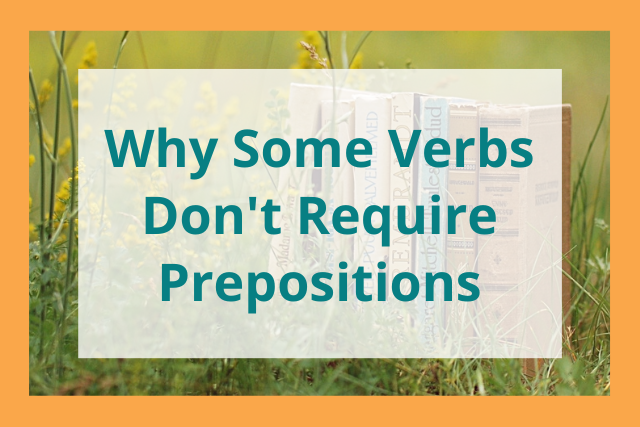
Verbs in English have several different forms. They can be phrasal, which requires an additional word or phrase to make sense. They can be prepositional, which means they need a preposition after the initial verb.
But many verbs do not require a preposition or additional phrase. Some of these verbs include: consider, discuss, influence, and emphasize.
In English, verbs are much more complicated than just being action words. There are modal verbs and be verbs. There are phrasal verbs and prepositional verbs.
Prepositional verbs are verbs that require a preposition, such as to or at, after the verb to make sense. Sometimes synonyms of prepositional verbs do not require prepositions. Let’s take a look at some of these verbs that can stand alone in a sentence.
For instance, talk is a prepositional verb when it precedes a direct object. But its synonym discuss does not require a preposition.
Examples
Consider
Incorrect: I will consider about your offer.
Correct: I will consider your offer.
Discuss
Incorrect: We can discuss about the opportunity for a promotion.
Correct: We can discuss the opportunity for a promotion.
Influence
Incorrect: She greatly influences to the field of intersectional feminism.
Correct: She greatly influences the field of intersectional feminism.
Emphasize
Incorrect: This quarter, we will emphasize about quality customer service.
Correct: This quarter, we will emphasize quality customer service.
Exceptions
Some verbs can be both prepositional and not prepositional, depending on the context or the verb tense. In the simple present tense, comprise is never prepositional. When comprised follows is or was, it functions as an adjective and requires the preposition of.
Incorrect: Five people comprise of the committee.
Correct: Five people comprise the committee.
Correct: The committee is comprised of five people.
The verb form of parallel functions similarly.
Incorrect: The current economic situation parallels by that of the 1920s.
Correct: The current economic situation parallels that of the 1920s.
Correct: The economics of the 1920s are paralleled by current events.
